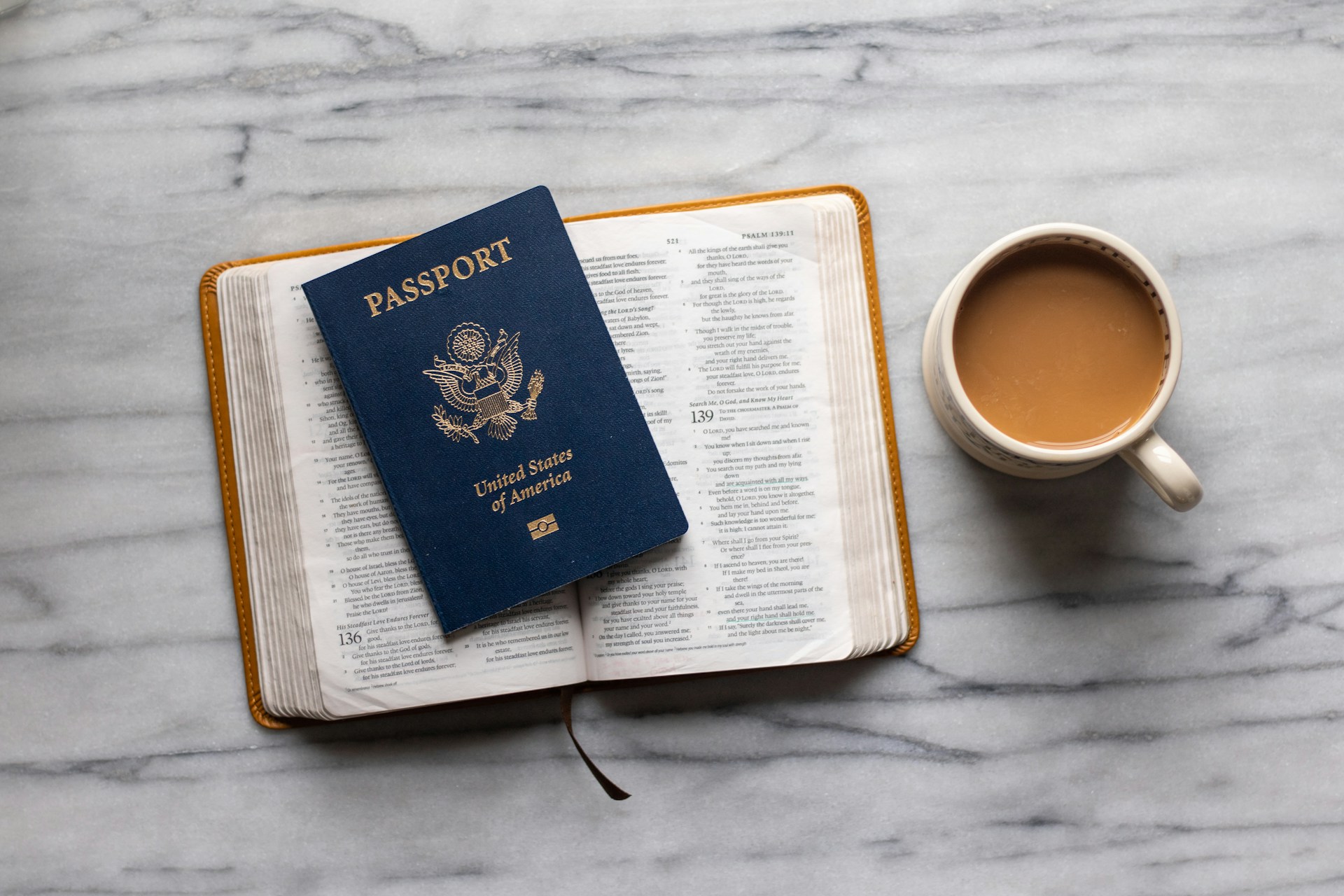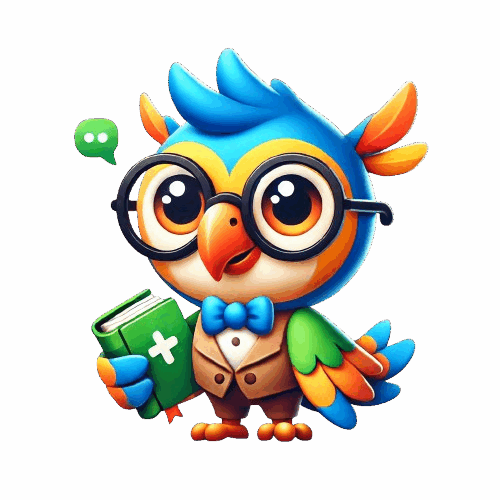How to Learn a Language for Travel: Essential Phrases and Tips

Learning a New Language for Travel: Key Phrases and Strategies
Learning a new language for travel opens up a world of opportunities to connect with locals, navigate new surroundings, and immerse oneself in different cultures. Key phrases play a fundamental role in effective communication while traveling, enabling travelers to express basic needs, ask for directions, and engage in simple conversations. Learning essential phrases such as greetings, numbers, ordering food, and asking for help can significantly enhance the travel experience and deepen cultural understanding.
Strategies for mastering these key phrases involve consistent practice, repetition, and real-life application. Utilizing flashcards, language learning apps, and engaging in conversational practice can help reinforce vocabulary and aid in retention. Immersing oneself in the language and culture, whether through local interactions, music, or movies, can further enhance language skills and confidence when navigating travel situations. By integrating these strategies into language learning, travelers can better prepare themselves for meaningful cross-cultural exchanges and memorable travel experiences.
Understanding the Importance of Language Learning for Travel
When it comes to travel, understanding the importance of language learning cannot be overstated. Language is the key that unlocks cultural experiences, facilitates communication with locals, and allows for a deeper connection to the places visited. By learning the language of the destination you are traveling to, you demonstrate a level of respect and appreciation for the local culture, which can lead to more enriching and authentic travel experiences.
Language learning for travel goes beyond just being able to order food or ask for directions. It opens up opportunities to engage with locals in meaningful conversations, navigate unfamiliar situations more confidently, and immerse yourself in the daily life of a new place. Speaking the local language can also help you to better understand the customs, traditions, and nuances of a culture, ultimately enhancing your overall travel experience.
Setting Language Learning Goals for Travel
Setting language learning goals for travel is a crucial step in the journey to becoming proficient in a new language. By establishing clear objectives, travelers can focus their efforts and track their progress effectively. It is important to set realistic and achievable goals that align with the specific language needs for the destinations one plans to visit. Whether it is learning essential phrases for communication or delving deeper into grammar and vocabulary, having well-defined goals can provide motivation and direction in the language learning process.
When setting language learning goals for travel, consider factors such as the duration of the trip, the level of language proficiency needed, and the specific cultural contexts where the language will be used. Breaking down larger goals into smaller, manageable tasks can make the learning process less overwhelming and more attainable. Additionally, setting a timeline for achieving these goals can create a sense of urgency and accountability, pushing travelers to stay committed to their language learning journey.
Choosing the Right Language Learning Resources
When embarking on the journey of learning a new language for travel, selecting the appropriate language learning resources can significantly impact your progress and success. With the abundance of options available in today’s digital age, it is essential to discern the resources that align with your learning style and goals. Consider utilizing a mix of tools such as online courses, language apps, textbooks, and interactive programs to create a well-rounded learning experience. Evaluating the quality, relevance, and user-friendliness of these resources is crucial in fostering a productive language learning journey.
Furthermore, seeking guidance from experienced language learners or educators can offer valuable insights into the most effective resources tailored to your specific needs. Additionally, exploring forums, reviews, and recommendations from fellow language learners can aid in identifying resources that have proven beneficial in achieving language proficiency. It is essential to adapt and refine your selection of language learning resources as you progress in your linguistic journey to ensure continuous growth and improvement.
Utilizing Language Learning Apps for Travel
Language learning apps have revolutionized the way travelers can pick up new languages quickly and conveniently. With a wide array of apps available on various platforms, learners can access lessons, practice vocabulary, and improve their pronunciation on the go. These apps often offer interactive exercises, quizzes, and audio lessons to engage users and make learning a language more enjoyable.
One of the key advantages of using language learning apps for travel is the flexibility they provide. Users can tailor their learning experience to their specific needs and schedule, allowing for personalized and efficient language acquisition. Additionally, many apps offer features such as speech recognition technology, which can help learners perfect their pronunciation by providing instant feedback and correction.
Immersing Yourself in the Language and Culture
One of the most effective ways to accelerate your language learning journey is by immersing yourself in the native language and culture. Surrounding yourself with native speakers and actively participating in cultural activities can greatly enhance your understanding and fluency. By immersing yourself in the language and culture, you not only improve your language skills but also gain a deeper insight into the customs, traditions, and way of life of the locals.
Immersing yourself in the language and culture allows you to experience firsthand how the language is used in real-life situations. This hands-on approach helps you pick up colloquial expressions, understand cultural nuances, and improve your overall language proficiency. Whether through local festivals, community events, or everyday interactions, immersing yourself in the language and culture creates a rich learning environment that enhances your language skills and fosters a deeper connection with the people and the place you are visiting.
Practicing Pronunciation and Accent
When learning a new language for travel, practicing pronunciation and accent plays a crucial role in effective communication. Native speakers often appreciate when learners make an effort to pronounce words correctly and with the appropriate accent. To master pronunciation, it is beneficial to listen to native speakers, repeat words and phrases aloud, and focus on the nuances of sounds specific to the language. Additionally, utilizing resources such as language learning apps or online pronunciation guides can help in refining your accent and pronunciation skills.
Improving your pronunciation and accent can greatly enhance your language skills and confidence during travel interactions. Through consistent practice and attention to details such as intonation and stress patterns, you can work towards sounding more natural and fluent in your target language. Remember that perfection is not the goal, but rather clear and effective communication that allows you to connect with locals and navigate different travel situations with ease.
Building Vocabulary for Travel Situations
When preparing for travel, building vocabulary for specific situations can greatly enhance your experience in a foreign country. Learning key phrases related to transportation, accommodation, dining, and emergencies can help you navigate various scenarios with ease. By focusing on practical vocabulary that is relevant to your travel needs, you can communicate effectively and handle everyday situations confidently.
To build your vocabulary for travel situations, consider creating themed lists of words and phrases to study regularly. Utilize flashcards or language learning apps to reinforce your memory and practice using the vocabulary in context. Immersing yourself in the language through conversations, reading materials, and listening to native speakers can also help you internalize the words and phrases more effectively. By consistently expanding your travel-related vocabulary, you can feel more prepared and capable of engaging with locals and navigating unfamiliar environments during your travels.
Mastering Essential Travel Phrases
Mastering essential travel phrases is crucial for navigating unfamiliar environments and connecting with locals during your trips abroad. These key phrases can help you in various situations, such as asking for directions, ordering food, or seeking help in an emergency. By learning and practicing these essential phrases before your travels, you can enhance your overall travel experience and feel more confident engaging with locals in their language.
Whether you are traveling for leisure or business, having a repertoire of essential travel phrases at your disposal can make a significant difference in how smoothly your trip unfolds. From greetings and pleasantries to practical phrases for shopping and transportation, mastering these basics can help you build rapport with locals and show respect for their culture and language. Taking the time to learn and memorize these essential phrases can truly enrich your travel experiences and make your interactions more meaningful and memorable.
Learning Basic Grammar Rules for Communication
Grammar rules are essential for effective communication in a new language. Understanding the basics of grammar helps in constructing coherent sentences and conveying thoughts accurately. When learning a new language, it is crucial to grasp fundamental concepts like sentence structure, verb conjugation, and word order to communicate clearly with native speakers. Mastery of basic grammar rules lays the foundation for building upon more complex language skills.
By familiarizing oneself with the grammar rules of a language, learners can avoid common mistakes and misunderstandings in conversations. For instance, knowing how to properly use tenses and articles can enhance the fluency and accuracy of spoken and written communication. Additionally, a solid understanding of grammar enables language learners to express ideas more precisely and confidently. Regular practice and application of basic grammar rules are key to developing proficiency in a new language for effective communication.
Engaging in Language Exchange with Native Speakers
Engaging in language exchange with native speakers can be a valuable opportunity to enhance your language skills. By conversing with someone who speaks the language fluently, you can practice real-life communication and gain insights into colloquial expressions and cultural nuances. This interactive approach to learning can help you improve your speaking and listening abilities in a practical and engaging way.
Native speakers can provide valuable feedback on your pronunciation and grammar, helping you to refine your language skills and build confidence in your communication abilities. Through regular interactions with native speakers, you can also broaden your vocabulary and improve your understanding of the language in context. By actively participating in language exchange sessions, you can create a supportive and dynamic learning environment that motivates you to progress in your language proficiency for travel purposes.
Taking Language Classes or Courses for Travel
Language classes or courses can provide structured learning environments for individuals looking to enhance their language skills for travel purposes. These classes often follow a curriculum that covers essential grammar rules, vocabulary, and practical language usage in real-life scenarios. By enrolling in a language course specific to the target language of their travel destination, learners can benefit from the guidance of experienced instructors and the opportunity to practice speaking and listening skills in a supportive setting.
Furthermore, language classes or courses for travel offer a systematic approach to language learning, allowing learners to progress through different levels of proficiency. Whether a beginner or an intermediate learner, these classes cater to individuals with varying levels of language proficiency and help them build a strong foundation for effective communication while traveling. Additionally, participating in language classes can offer opportunities for cultural immersion and interaction with fellow language learners, creating a conducive environment for language practice and skill development.
Utilizing Flashcards and Memory Techniques
Flashcards and memory techniques are powerful tools in language learning. By creating flashcards with words or phrases on one side and their translations or meanings on the other, you can reinforce your memory and retention of new vocabulary. Repetition is key when using flashcards, as it helps to solidify your understanding and recall of the language concepts. Additionally, incorporating memory techniques such as visualization, association, or mnemonic devices can further enhance your ability to remember words and phrases effectively.
When utilizing flashcards and memory techniques for language learning, consistency is crucial. Devoting just a few minutes each day to reviewing your flashcards can make a significant difference in your language acquisition journey. Furthermore, incorporating these tools into your daily routine can help you maintain a steady progress and prevent forgetting previously learned material. By actively engaging with flashcards and memory techniques, you can boost your confidence in using the new language in real-life situations.
Listening to Music and Watching Movies in the Target Language
When it comes to learning a new language for travel, incorporating music and movies in the target language can be a fun and effective way to improve your listening skills and expand your vocabulary. By immersing yourself in songs and films in the language you’re learning, you can not only pick up on common phrases and expressions but also get a feel for the natural flow and rhythm of the language.
Listening to music in the target language can help you familiarize yourself with the pronunciation and intonation of words, while watching movies can provide you with visual context and help reinforce your understanding of cultural nuances and colloquialisms. Whether you’re jamming out to catchy tunes or following along with subtitles in a foreign film, incorporating these media forms into your language learning routine can make the process more engaging and enjoyable.
Reading Books and Articles in the Target Language
Reading books and articles in the target language can be a highly effective way to improve your language skills while immersing yourself in the culture. By exposing yourself to written texts in the language you are learning, you can expand your vocabulary, improve your grammar, and gain a deeper understanding of the nuances of the language. Additionally, reading materials in the target language allows you to see how words and phrases are used in context, helping you to develop a more natural and authentic communication style.
Engaging with books and articles in the target language also provides you with valuable cultural insights and perspectives. Through reading literature, news stories, and other written works in the language, you can gain a better understanding of the history, traditions, and beliefs of the native speakers. This cultural immersion through reading can not only enhance your language skills but also deepen your appreciation and respect for the people and customs of the country you are preparing to visit.
Using Language Learning Websites and Online Tools
In today’s digital age, language learners have a plethora of resources at their fingertips to enhance their skills. Online tools offer a convenient and accessible way to practice vocabulary, grammar, and pronunciation. These websites often provide interactive exercises, quizzes, and lessons that cater to different learning styles, making the language learning process engaging and effective.
Language learning websites also offer the opportunity to connect with other learners and native speakers from around the world. Through forums, chat rooms, and language exchange platforms, learners can practice their skills in real-life conversations and receive feedback on their progress. Additionally, many websites offer audio and video materials that expose learners to authentic language usage, helping them improve their listening and comprehension skills. By incorporating language learning websites into their study routine, learners can supplement their learning and make steady progress towards their language goals.
• Language learning websites provide interactive exercises, quizzes, and lessons for different learning styles
• Online tools offer a convenient way to practice vocabulary, grammar, and pronunciation
• Connecting with other learners and native speakers through forums and chat rooms enhances language skills
• Audio and video materials on websites help improve listening and comprehension skills
Practicing Conversational Skills for Real-Life Situations
When it comes to mastering a new language for travel, practicing conversational skills in real-life situations is crucial for fluency and confidence. Engaging in conversations with native speakers or fellow language learners allows you to apply what you’ve learned in a practical setting. Whether it’s ordering food at a local restaurant, asking for directions, or having small talk with locals, these interactions help you build your communication skills and adapt to different speaking styles and accents.
Real-life conversations also provide valuable opportunities to practice listening and comprehension skills. By actively engaging in dialogues, you train your ear to understand the rhythm and nuances of the language, improving your overall language proficiency. Additionally, conversing with others allows you to receive immediate feedback on your pronunciation, grammar, and vocabulary usage, enabling you to identify areas for improvement and fine-tune your language skills effectively.
Staying Consistent and Dedicated in Language Learning
Consistency and dedication are key when it comes to language learning for travel. Set aside a specific time each day to practice and study, even if it’s just for a few minutes. By making language learning a regular part of your routine, you will progress more effectively and retain what you’ve learned.
It’s important to stay motivated throughout the language learning process. Remind yourself of your travel goals and the benefits of being able to communicate in a different language. Celebrate small victories along the way, whether it’s mastering a new phrase or understanding a complex grammar rule. Keeping a positive attitude and staying committed to your language learning journey will help you progress and reach your travel goals.
Seeking Feedback and Correction from Native Speakers
When learning a new language for travel, seeking feedback and correction from native speakers is a crucial step in improving your language skills. Native speakers can provide valuable insight into your pronunciation, grammar, and overall language proficiency. By actively engaging with native speakers, you can receive immediate feedback on your language usage and work towards refining your communication abilities for real-life travel situations. Their input can help you avoid common mistakes, improve your fluency, and gain a better understanding of cultural nuances embedded in the language.
Additionally, interacting with native speakers allows you to practice your conversational skills in a more authentic setting. Through these interactions, you can learn colloquial expressions, idiomatic phrases, and various linguistic nuances that may not be easily gleaned from textbooks or language learning apps. Embracing the opportunity to receive feedback and correction from native speakers not only enhances your language proficiency but also fosters a deeper appreciation for the cultural aspects intertwined with the language, enriching your overall travel experience.
Testing Your Language Proficiency for Travel.
As you prepare for your travels to a foreign country, assessing your language proficiency is crucial to navigate effectively through different situations you may encounter. Testing your language skills can provide valuable insight into your current level of understanding and communication abilities. This evaluation allows you to identify areas that need improvement and measure your progress in learning the language for travel purposes.
There are various ways to evaluate your language proficiency before embarking on your journey, such as taking online language tests, participating in language exchange conversations with native speakers, or engaging in simulated travel scenarios to assess your practical communication skills. By assessing your language proficiency accurately, you can better tailor your learning efforts and focus on areas that require more attention to enhance your overall linguistic capabilities for an enriching travel experience.





